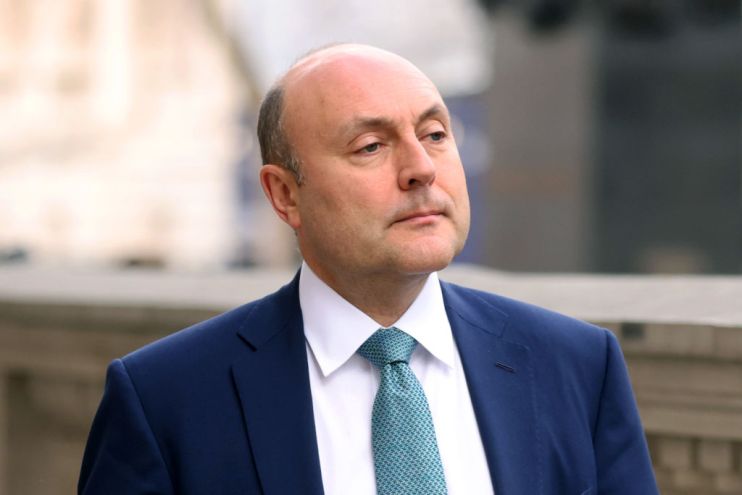‘Blunt, unsociable and very smart’: Meet new City minister Andrew Griffith

Andrew Griffith’s rapid ascent in the Tory party has spurred admiration and frustration among his fellow MPs. The new City minister was elected to parliament less than three years ago, but has now held ministerial positions in two major departments and as Number 10 policy chief under Boris Johnson.
Griffith’s burgeoning political career is inexorably tied to his old boss. He was chosen for the safe Conservative seat of Arundel and South Downs, in West Sussex, after serving as Johnson’s chief business adviser when he became Prime Minister in the summer of 2019. The appointment came after a sparkling business career – but, unkind fellow MPs point out, also after Griffith lent the former Prime Minister his £9.5m Westminster townhouse to use as a base for his successful Tory leadership campaign.
His allies paint an image of a diligent and hard working MP who deserves his place as one of the party’s coming men, despite not being universally popular within the Tory party. One former Number 10 aide said Griffith was “so hard working” when he was Johnson’s policy chief and that he brought a “private sector mentality” to government.
“He knew how to make policy both political and doable,” they said.
“He’s a very smart guy.”
A senior trade department official said Griffith was “super engaged” in his short stint as exports minister and that they were “honestly sad to see him go”.
His private sector experience outshines the vast majority of parliamentarians across the House of Commons and will likely put him in good stead for his new role at the Treasury. After stints at Rothschild & Co and PwC, he joined Sky as a financial analyst at the turn of the century.
He was appointed as Sky’s chief financial officer in 2008 and by 2016 was also the company’s chief operating officer. Sky’s revenue almost tripled during Griffith’s tenure as an executive, which included the company’s sale to US giant Comcast. He made around £17m from the sale of his shares when the deal was finalised.
Griffith has had a sometimes fractious relationship with MPs in his own party, with some questioning his rapid rise up the greasy pole of politics. A former minister said Griffith “basically bought his way in” to the parliamentary party.
“He bought [Tory MP] Adam Afriyie’s house at a time when he was in financial trouble and let Boris use it 2019. He’s been milking that for all it’s worth ever since,” they said.
The new City minister’s decision to put aside a lucrative business career was hardly a surprise given his long- standing political ambitions. Griffith stood in the Northamptonshire constituency of Corby in the 2001 and 2005 elections, but was narrowly defeated on both occasions.
He is clearly a political animal and is said to be particularly enthusiastic about all types of Westminster chicanery. Several Westminster hacks at the recent Tory leadership announcement said Griffith looked like he had loved every minute of the bruising contest between Liz Truss and Sunak.
He has made a reputation for himself as a blunt and, according to one Tory aide, “unsociable” operator. One Tory MP was much less diplomatic in his assessment of the new City minister.
“He’s not a warm or affable person and I don’t think people in the City will warm to him. He’s not well liked in the party and you won’t find many people who would have a nice word to say about him,” they said.
Griffith will likely begin an immediate tour of City boardrooms to engage with firms about the government’s post-Brexit changes to the UK’s financial services rulebook. The Financial Services and Markets Bill has already been brought forward to parliament, with the legislation providing a mechanism for how to scrap EU regulations.
The Treasury and financial regulators still need to bring forward a replacement regulatory regime, with Truss and chancellor Kwasi Kwarteng keen to herald in a “Big Bang 2” – a reference to the 1980s deregulatory period, which spurred substantial growth in UK financial services.
With his doubtless bulging contact book from his time as a FTSE100 executive, Griffith should be able to immediately engage in key consultations with the City on these crucial reforms.